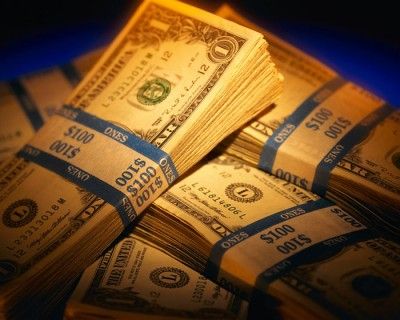
Banks had at least six months to prepare a sensible solution to the "problem" of the 2009 bonuses. For that to happen, they had to accept the situation they were in, and recognize the social and political outrage surrounding them. They could at least show some concern about the fate of their clients, especially small and medium enterprises and households which they are slowly but surely suffocating.
Instead of trying to come with a constructive solution to attenuate a loss of trust and confidence in their leadership and institutions, they failed to accept that their exceptional earnings did not become to them.
The exceptional level of activity of the bond markets around the world ($ 2 trillion) was made possible by the fact that interest rates were maintained artificially low by the Federal Reserve Board. In a context of low interest rates, corporations took advantage of lower yields to consolidate their indebtedness, and, if I believe what many CEOs and CFOs are telling me, make sure that they no longer depend from erratic decisions by bank managements.
Not only did those super profits not belong to them but to the authorities and the public, but they also managed to take advantage of that situation to disentangle themselves from the bailout, not for financial reasons, but to make sure they could pay the $ 150 billion they intend to allocate as 2009 bonuses. The negotiation of the TARP conditions was so favorable to the banks that it puts the authorities in a conundrum.
Facing that situation, the Treasury is caught between two evils: either they refuse to be repaid and maintain the banks under close surveillance. In that case, they continue to be criticized for using taxpayers' money. Or they accept the repayment, and just get some interest, losing their leverage to transform the way bankers are compensated.
Based on the Financial Stability Board recommendations, the regulators should and could impose that a substantial part of the 2009 earnings be put in reserve to consolidate the equity position of the banks in front of the future challenges. We are not yet out of the woods. Between the risks connected to consumer finance, credit cards, commercial real estate and residential mortgages, a financial crisis are not excluded this year.
And then, what happens? Will they dare to ask the Government to step in after having put $ 150 billion in their individual pockets? Will they cry that they did not see it come? Will the regulators continue, Mr. Bernanke at the Fed as the first one, state that there are no systemic risks anymore and no assets inflation? Are we blind about what lies ahead?
The arrogance, cynicism and irresponsibility of the banks this year is appalling. They did nothing to support any form of consumer or SME financing: they strangle every day, through credit cards and otherwise, households and companies. The Private Equity Funds are up in arms not to pay ordinary income taxes on their carried interest while they did not invest while they want only to pay capital gain taxes?
President Obama is right to be outraged, and we all are. Time has come to settle the account. The lack of civism of banks deserves nothing else than a substantial tax on the income they did not earn by their efforts, and a subsequent reduction of the bonuses of bankers who effortless benefitted from the generosity of the Government and the low interest rates of a benevolent Federal Reserve.